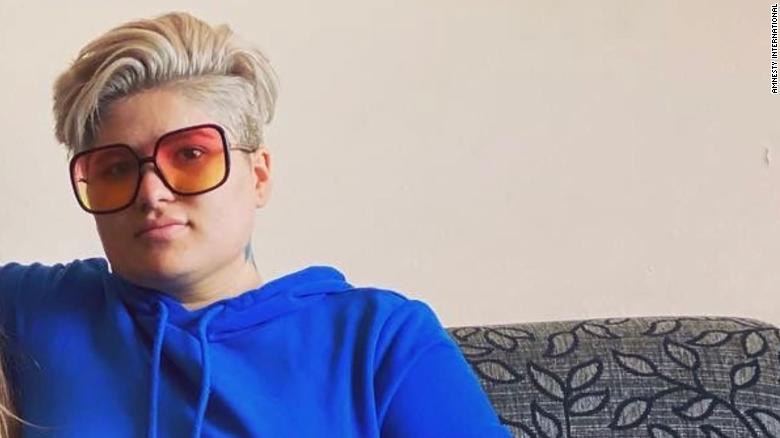
(CNN) – Two Iranians were sentenced to death by a court for “corruption on earth,” Iran’s state news agency IRNA said Monday.
One of them, Zahra Sedighi-Hamadani, was described by Amnesty International earlier this year as a gender nonconforming person and LGBTI activist who was detained by authorities “due to her real or perceived sexual orientation and gender identity, as well as her social media posts and statements in defense of LGBTI rights.”
Elham Chobdar was also charged and convicted as part of the same case and sentenced to death, Iranian state media reported.
The two were accused of “trafficking young women” in Iran’s West Azerbaijan province and unnamed other parts of the country, according to the report from IRNA.
Amnesty said Tuesday it was “outraged” by the sentences and called on Iran’s authorities to immediately “quash the convictions and death sentences” and release Sedighi-Hamadani and Chobdar, the statement said. The sentences are being appealed in Iran’s Supreme Court, it added.
Amnesty said in January that Sedighi-Hamadani, who also uses the name Sareh, was first detained in October 2021 in Erbil, Iraq, in connection to an appearance she made in a BBC documentary, speaking about abuses of the LGBTQ community in the region.
After her release in Iraq, Sedighi-Hamadani attempted to cross into Turkey from Iran to seek asylum, Amnesty said, but in November, the Intelligence Organization of the Revolutionary Guards said that a “leader” of a human trafficking network “involved in smuggling Iranian girls and women” to neighboring countries and directing them to homosexual groups under “protection of [foreign] intelligence agencies” had been caught.
Amnesty believes the statement by the Revolutionary Guards referred to Sedighi-Hamadani and called the allegations “spurious and baseless.”
Before allegedly attempting to cross into Turkey, Sedighi-Hamadani said she was “journeying toward freedom” in a video released by the Iranian Lesbian and Transgender Network, also known as 6Rang, in December of 2021 and referenced by Amnesty the following month.
“If I make it, I will continue to look after LGBT people. I will be standing behind them and raising my voice. If I don’t make it, I will have given my life for this cause,” she said in the video.
In a letter sent to the Chief Justice of Iran, Gholam-Hossein Mohseni-Ejei, Amnesty said Sedighi-Hamadani was accused in January by the prosecutor in Urumieh of “spreading corruption on earth” including through “promoting homosexuality,” “communication with anti-Islamic Republic media channels,” and “promoting Christianity.”
Iranian state media said that Sedighi-Hamadani and Chobdar’s sentences were related to trafficking, without referring to Sedighi-Hamadani’s charges or her activism, or further details on Chobdar.
“Contrary to reports published on social media, the area of charges against these individuals is related to the trafficking of women and young girls with the hope of education and promise of employment to a regional country and they were also abused and that led to the suicide of a number of these girls,” IRNA said, without providing details.
CNN has reached out to the Iranian government about the allegation that Sedighi-Hamadani’s sexual minority status was the reason for her conviction. It was not immediately clear whether Sedighi-Hamadani and Chobdar had attorneys.




